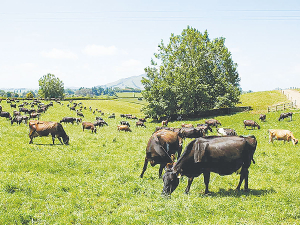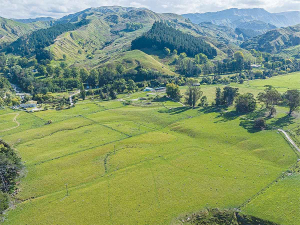OPINION: Good nutrient management will keep nutrients cycling within the farm system and reduce losses to the environment to the bare minimum.
We’re now almost at the end of spring, when nutrients are most at risk of leaving farms due to high rainfall, low pasture growth, lots of stock urine being deposited, soil compaction and pugging. That risks farm production and damaging the health of waterways and groundwater.
Some nutrients are more prone to loss than others, depending on the nature of the nutrient, soil type and climatic conditions. Helping to handle those risks smartly, thereby boosting production while protecting fresh water, is what good nutrient management is all about.
Leaching through soil is one of the biggest nutrient loss risks. Nutrients like nitrogen, potassium, calcium, magnesium and sulphur can leach with drained water.
It occurs when soluble nutrients are leached through the root zone into deeper layers of the soil and they become inaccessible to plant roots. The leaching risk depends on various factors such as soil type, total rainfall, extreme weather events and the actual quantity of soluble nutrients present in the soil.
Don’t oversupply the soil with such types of soluble nutrients, especially not during winter, as there is a very high risk of these getting washed out through the soil and lost from farm systems.
A good understanding of the processes and terminology involved with nutrient cycles is important for budgeting and management.
For nitrogen, one of the key nutrients that both grows grass and can harm waterways, there are two important processes – immobilisation and its opposite, mineralisation.
Immobilisation is the conversion of plant available nitrogen into organic forms, while mineralisation is the conversion of soil organic nitrogen into plant available forms such as nitrate and ammonium.
These processes are controlled by microbes, and the degree of their activity, in the soil. This activity is influenced by soil temperature – lower the temperature, lower the activity and greater the loss of nutrients.
Another point about nitrogen is that, generally, there will be an increase in nitrate leaching with increasing rate of nitrogenous fertiliser.
Phosphorus loss, on the other hand, mainly occurs from erosion and runoff. Research has revealed that phosphorus losses will be high in soils with high Olsen-P levels and also on steep to rolling country. Managing these optimum levels and controlling soil erosion are keys to helping prevent this.
Intensive winter grazing by sheep, cattle and deer can have impacts on the environment, including loss of soil and associated sedimentation of waterways, nutrient loss and damage to soil structure due to pugging. Some of the mitigations to avoid these impacts are use of catch crops, vegetative buffers between winter grazing and waterways, reduction of grazing duration per day, strategic grazing, and the use of mixed species in forage paddocks.
Overall, the ongoing challenge is to ensure our farming systems efficiently cycle nutrients. Smart nutrient management practices for all land uses and activities has the potential to bring about substantial improvements in the quality of our water resources and profits.
Bala Tikkisetty is Principal Sustainable Agricultural Advisor at Waikato Regional Council, phone 0800 800 401 or email This email address is being protected from spambots. You need JavaScript enabled to view it.


















